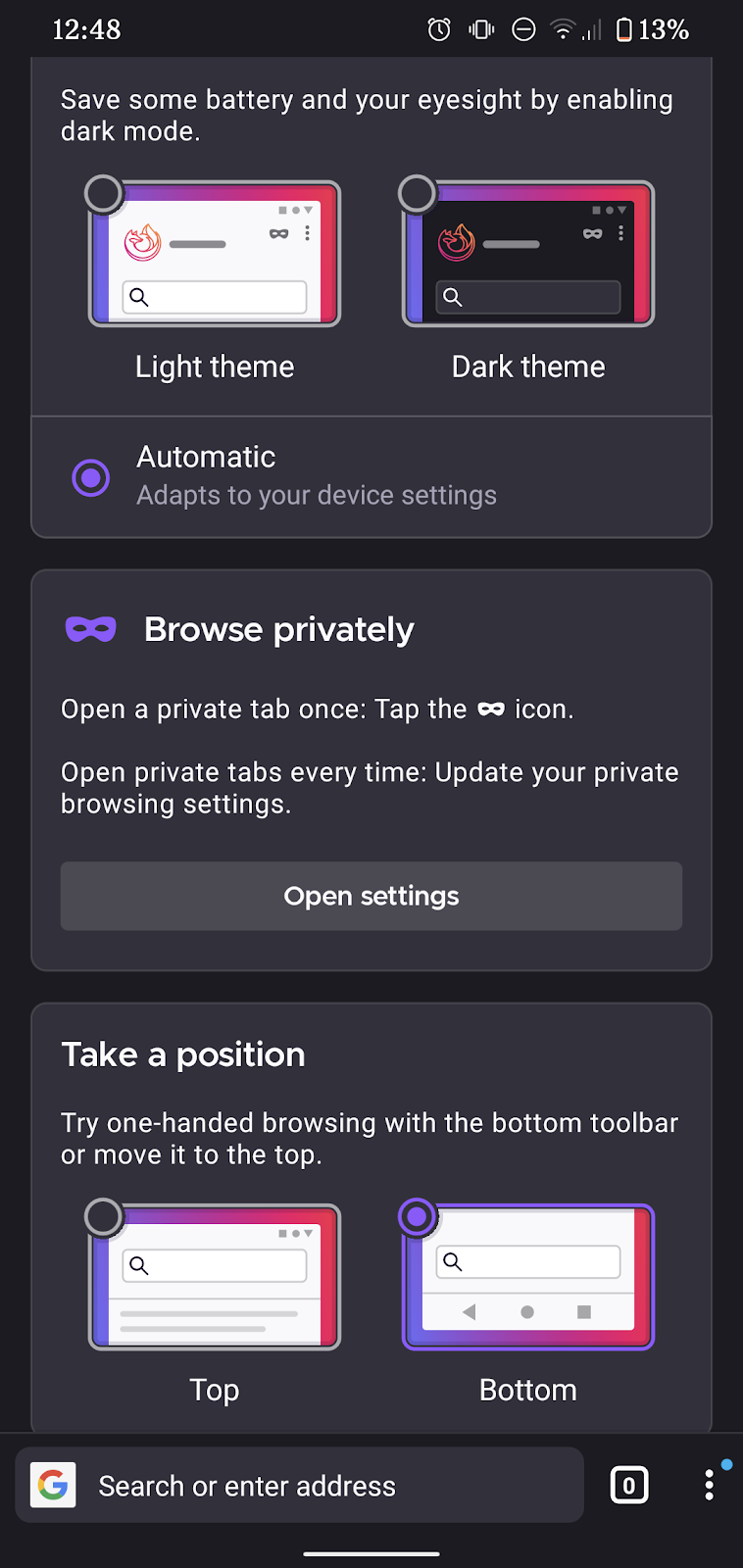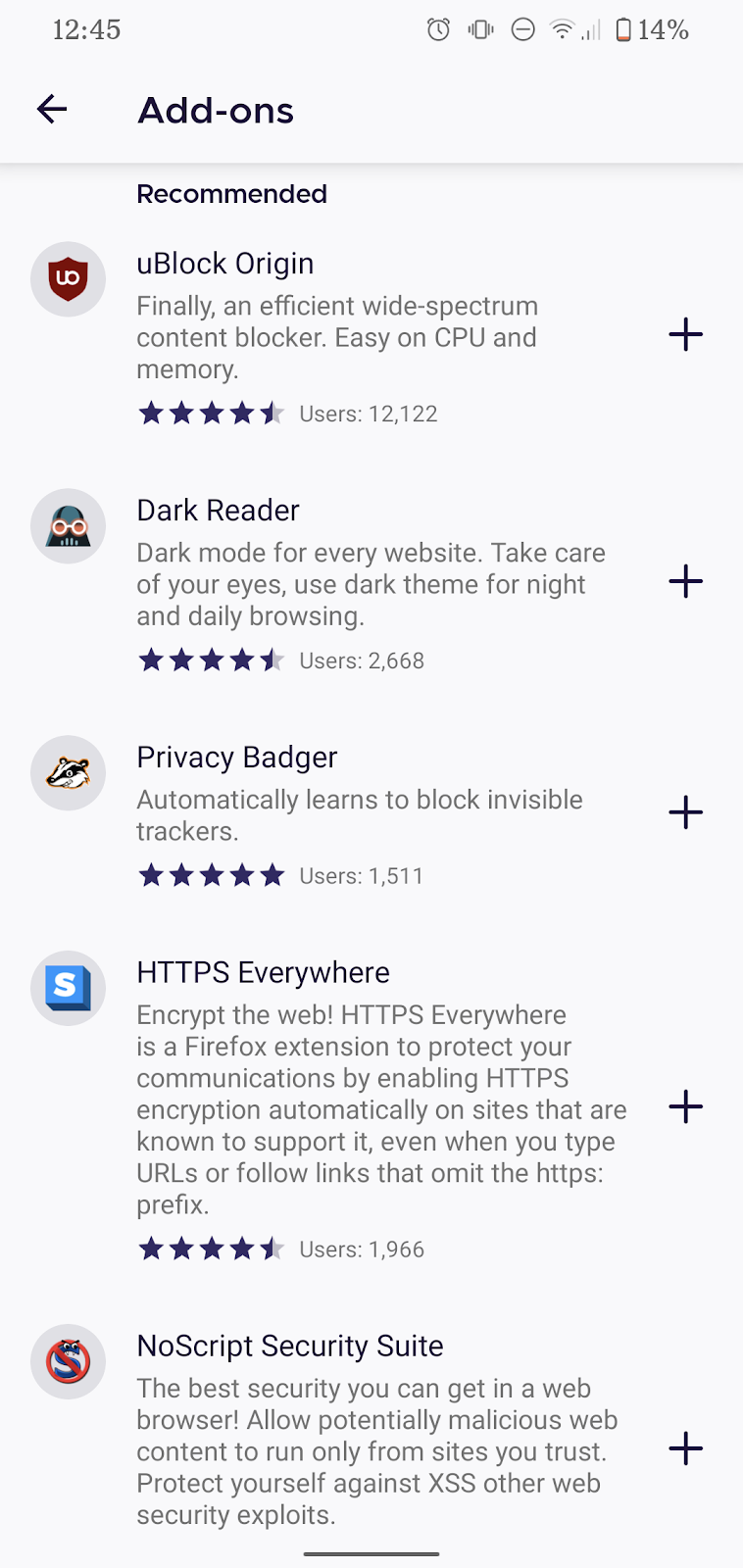Every browser has a certain something to set it apart from the others. Edge has that logo. Chrome hogs your memory. And Mozilla’s Firefox really, really cares about your privacy. The idea of keeping your web-browsing experience personal is something the company’s been emphasising in every product update for the past few years, so naturally, it’s a key component of the company’s newly revamped Android browser, too.
Called Daylight, the new browser is built to be cleaner and more customisable than Firefox’s previous browser iterations for Android. Similar to the way Mozilla debuted its Firefox Quantum browser last year under a new, snazzy name to signify a browser that went through a complete overhaul, Daylight got its new name because it went through a similarly sizable revamp, inside and out. Firefox users in the EU are going to get their hands on the update today, while folks in North America are getting access later this week, on Aug. 27.

First, let’s talk about the biggest change coming in Daylight. Mozilla has offered a super-private Firefox Focus browser for Android users for the past few years, but it came with the same caveat that just about every major Android browser comes with: It ran on the Google-created Blink web engine that forms the backbone of Android browsers like Chrome, Edge, and Brave. But because Google’s, well, Google, it’d make sense that a company as privacy-centric as Mozilla would want to steer clear of any sort of dependence on Google’s back-end tech, even if something as finicky as web engines isn’t a major consideration for the average Firefox user. After months of gutting its original app and putting it back together, Mozilla was finally able to get its new Daylight browser working on the company’s own engine for Android, GeckoView.
Starting from scratch like this comes with a few perks. Because Mozilla’s crafted both the Android browser in question along with the engine it runs on, that means it’s only beholden to its own release cycle. Now, if Mozilla wants to add in any privacy or security features — or, hell, any features at all — it doesn’t need to wait for any third-party say-so in order to test those out. And because it’s not dependent on Google’s Blink engine, that means it’s not affected by any security issues that might sneak into future releases of the engine the same way, say, Chrome or Edge will.
Plus, according to Mozilla, using Gecko as the backbone should make the Firefox-on-Android experience a helluvalot speedier. Firefox users can also toggle their address bar between the bottom and top of a given screen, similar to a feature that Google implemented on its own Android-based browser to cater to folks with phones on the bigger side. And naturally, as a dark-mode enthusiast, I appreciate that Daylight gives its users the ability to manually switch between light and dark themes, or set them to change as the day progresses.
Daylight also comes packed with some of the faves that die-hard Firefoxers on desktop have come to know and love, like Collections, which allow folks to bundle their tabs into groups to better organise things, and the Picture-in-Picture feature that bursts a video out of a given tab so that you can keep watching while you do the rest of your browsing elsewhere around the web.

Now that we’ve gotten the good out of the way, I need to say where this Gecko-fied browser fell flat for me — and surprisingly enough, it’s in the privacy department. My gripes don’t stem from Daylight in particular, but the Enhanced Tracking Protection, or ETP tech, that Mozilla bakes into all of its mobile browsers in the name of snuffing out third-party cookies and other sorts of digital breadcrumbs that can be used for a lot of quite frankly very spooky shit. By default, Firefox blocks dozens of the trackers and bits of targeting tech that might be dropped on you whenever you visit a website, with the promise that those trackers will be swept out of Firefox’s system every 24 hours.
But some of these bits of tracking tech are so hard-wired into a given website that blocking them means borking an entire webpage for the sake of preserving your privacy — which isn’t a trade-off too many web surfers might be willing to make. That means Firefox won’t block them for you unless you take a few extra steps yourself.
Meanwhile, Mozilla makes it crystal clear that by default, Firefox tries not to crack down on the sort of first-party cookies that, say, “remember your login credentials or items in your shopping cart,” since these are ostensibly cookies you’d prefer to have hanging around — especially if it’s a shopping site you visit frequently. Firefox, thankfully, doesn’t leave these tracking cookies hanging around indefinitely, but it does wait a whopping 45 days in order to dust them off.
I totally get why Firefox would want to give a bit more leeway to any first-party cookies as opposed to their third-party counterparts, but if they really care about privacy as much as they say they do, well, they need to put the brakes on this practice, and quick. There’s tons of players in the data space whose literal job is to “synch” data from first-party sources with other pieces of digital data that either you or your browser might’ve left somewhere online. And once those first-party trackers are synched together, any smart player in the data space can still track you across the web if they really wanted to, even if there’s no third-party cookies to be found.
Because Daylight incorporates Mozilla’s ETP tech, and because this ETP tech has this massive hole in its defences, this new browser is one that tells you it’s private, and feels private, but ultimately is still a far path from perfect. That said, at least it’s not Chrome.
